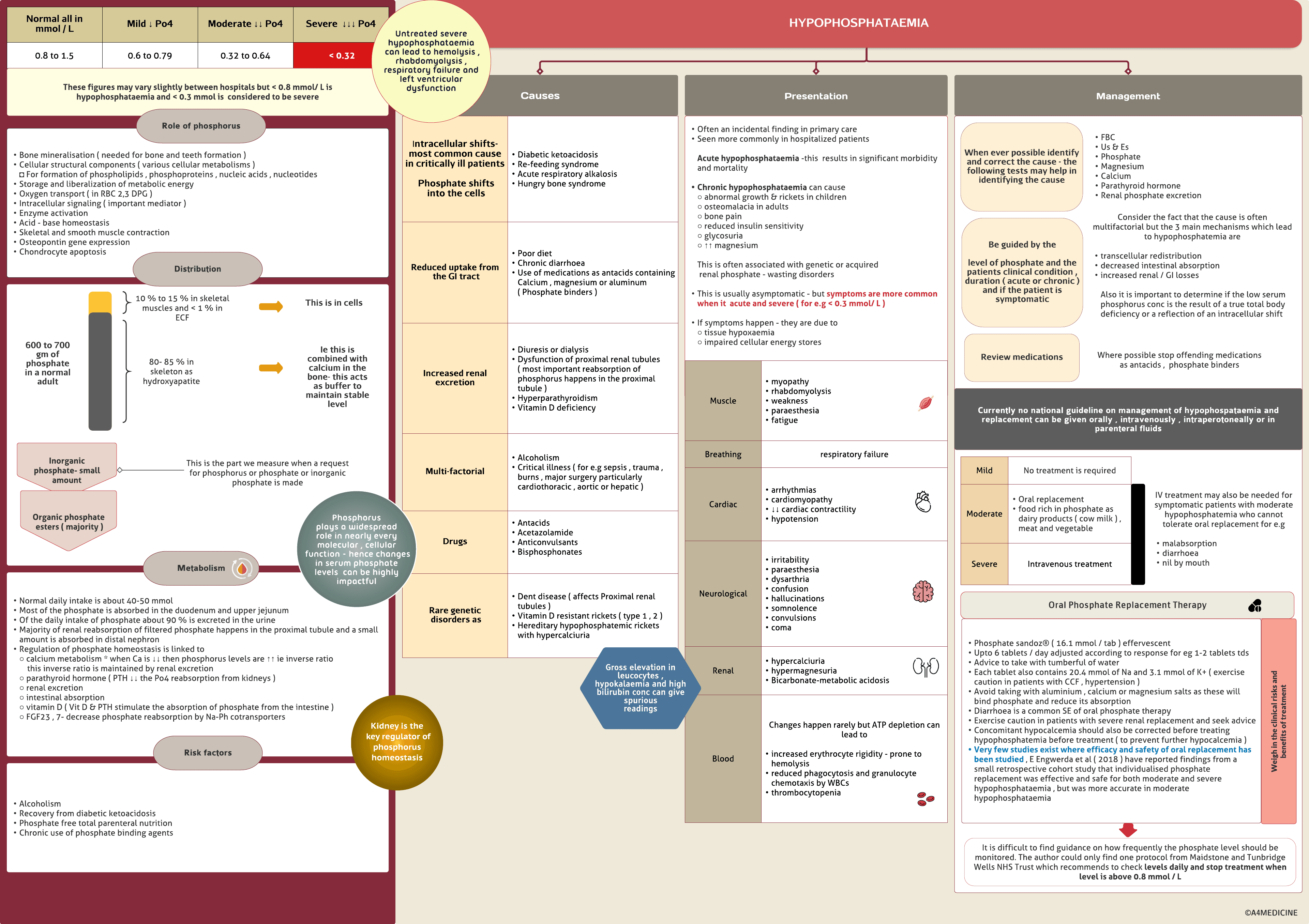Download A4Medicine Mobile App
Empower Your RCGP AKT Journey: Master the MCQs with Us!

These figures may vary slightly between hospitals but < 0.8 mmol/ L is hypophosphataemia and < 0.3 mmol is considered to be severe
Role of phosphorus
Bone mineralisation ( needed for bone and teeth formation ) Cellular structural components ( various cellular metabolisms )◘ For formation of phospholipids , phosphoproteins , nucleic acids , nucleotides Storage and liberalization of metabolic energy Oxygen transport ( in RBC 2,3 DPG ) Intracellular signaling ( important mediator ) Enzyme activation Acid - base homeostasis Skeletal and smooth muscle contraction Osteopontin gene expression Chondrocyte apoptosis
80- 85 % in skeleton as hydroxyapatite
Metabolism -Normal daily intake is about 40-50 mmol Most of the phosphate is absorbed in the duodenum and upper jejunum Of the daily intake of phosphate about 90 % is excreted in the urine Majority of renal reabsorption of filtered phosphate happens in the proximal tubule and a small amount is absorbed in distal nephron Regulation of phosphate homeostasis is linked to○ calcium metabolism * when Ca is ↓↓ then phosphorus levels are ↑↑ ie inverse ratio this inverse ratio is maintained by renal excretion○ parathyroid hormone ( PTH ↓↓ the Po4 reabsorption from kidneys )○ renal excretion○ intestinal absorption○ vitamin D...
Try our Free Plan to get the full article.